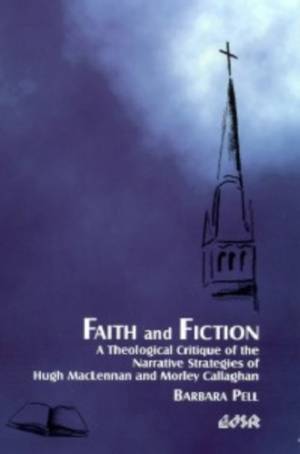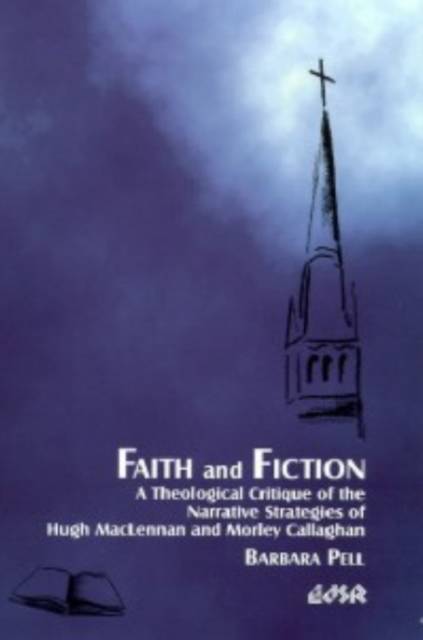
- Retrait gratuit dans votre magasin Club
- 7.000.000 titres dans notre catalogue
- Payer en toute sécurité
- Toujours un magasin près de chez vous
- Retrait gratuit dans votre magasin Club
- 7.000.0000 titres dans notre catalogue
- Payer en toute sécurité
- Toujours un magasin près de chez vous
Faith and Fiction
A Theological Critique of the Narrative Strategies of Hugh MacLennan and Morley Callaghan
Barbara PellDescription
Is it possible to write an artistically respectable and theoretically convincing religious novel in a non-religious age?
Up to now, there has been no substantial application of theological criticism to the works of Hugh MacLennan and Morley Callaghan, the two most important Canadian novelists before 1960. Yet both were religious writers during the period when Canada entered the modern, non-religious era, and both greatly influenced the development of our literature. MacLennan's journey from Calvinism to Christian existentialism is documented in his essays and seven novels, most fully in The Watch that Ends the Night.
Callaghan's fourteen novels are marked by tensions in his theology of Catholic humanism, with his later novels defining his theological themes in increasingly secular terms. This tension between narrative and metanarrative has produced both the artistic strengths and the moral ambiguities that characterize his work.
Faith and Fiction: A Theological Critique of the Narrative Strategies of Hugh MacLennan and Morley Callaghan is a significant contribution to the relatively new field studying the relation between religion and literature in Canada.
Spécifications
Parties prenantes
- Auteur(s) :
- Editeur:
Contenu
- Nombre de pages :
- 150
- Langue:
- Anglais
- Collection :
- Tome:
- n° 23
Caractéristiques
- EAN:
- 9780889203075
- Date de parution :
- 02-11-98
- Format:
- Livre broché
- Format numérique:
- Trade paperback (VS)
- Dimensions :
- 157 mm x 223 mm
- Poids :
- 240 g

Les avis
Nous publions uniquement les avis qui respectent les conditions requises. Consultez nos conditions pour les avis.






